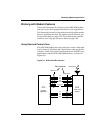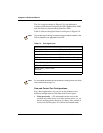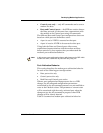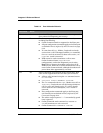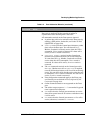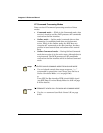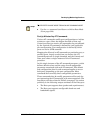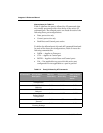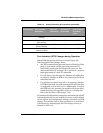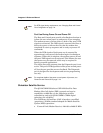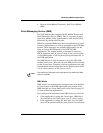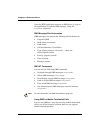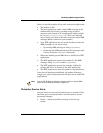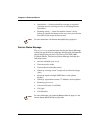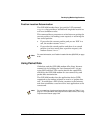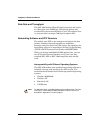
Developing Modem Applications
80-99208-1 Rev. D 5-15
Port Activation (DTR) Changes during Operation
When DTR changes on the Data or Control ports, the
following operational changes occur:
• Any AT command being processed on the Control or Data
ports is terminated and the port that processes AT
commands, based upon the arbitration rules (see Port
Arbitration Behavior on page 5-9), is placed in a state to
begin processing of a new AT command.
• If a call (data or special test call—Markov or Loopback) is
in progress, changes in DTR on the Control port will not
terminate the call.
• If a call (data or special test call) is in progress, changes
in DTR on the Data port will terminate the call if the port
is configured to do so with
AT&D2. Additionally, if none of
the DTR lines are asserted, the module will power down
terminating the call regardless of the
AT&D setting (See
Power-On and Power-Off on page 7-18).
AT command configuration parameters maintained by the AT
command processor are not modified or reset to their default
values when a port configuration change occurs due to a DTR
change. The current state of these parameters is associated
with the newly activated port after the change occurs, as
defined in Table 5-4.
+IFC Local Flow Control
Settings
DATA NA DATA
+IPR Rm Interface Baud
Rate Setting
DATA NA DATA
+CRM Rm Interface
Protocol Setting
DATA NA DATA
+CTA Dormant Mode
Timeout Setting
DATA NA DATA
Table 5-4. Port(s) Affected by AT Commands (continued)
Port Command Applies To:
AT Command AT Command
Description
Data Port
Active Only
Control Port
Active Only
Data & Control
Ports Both
Active



